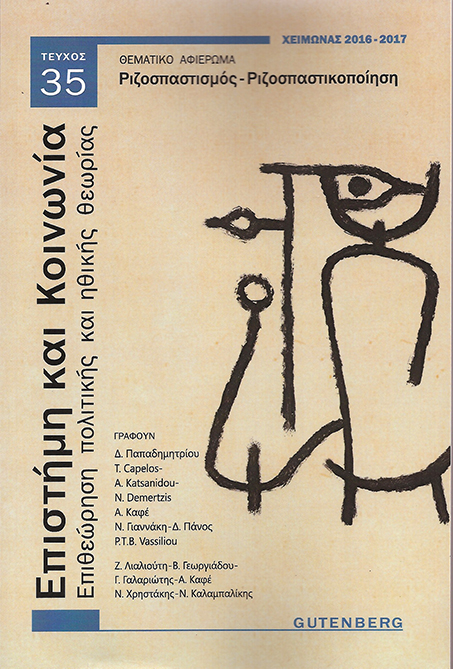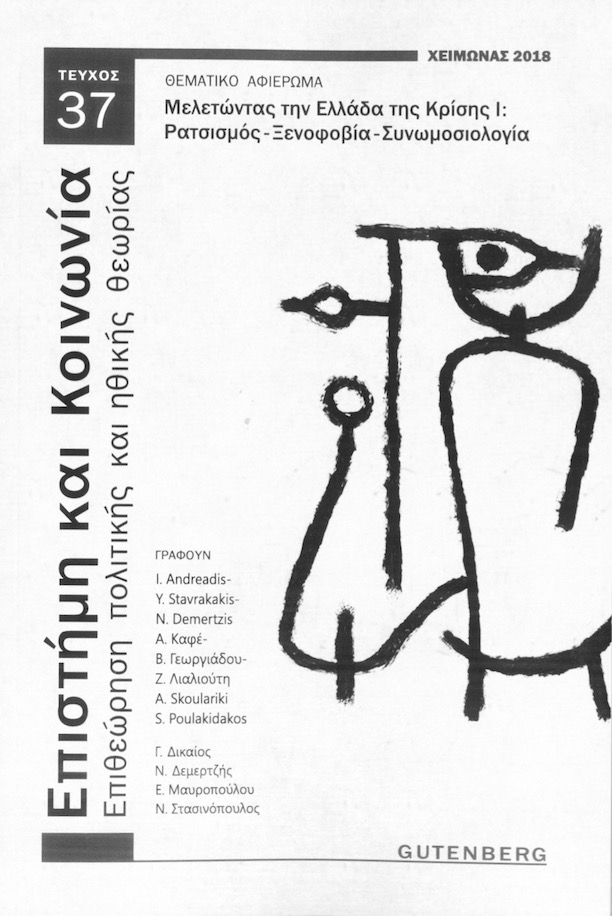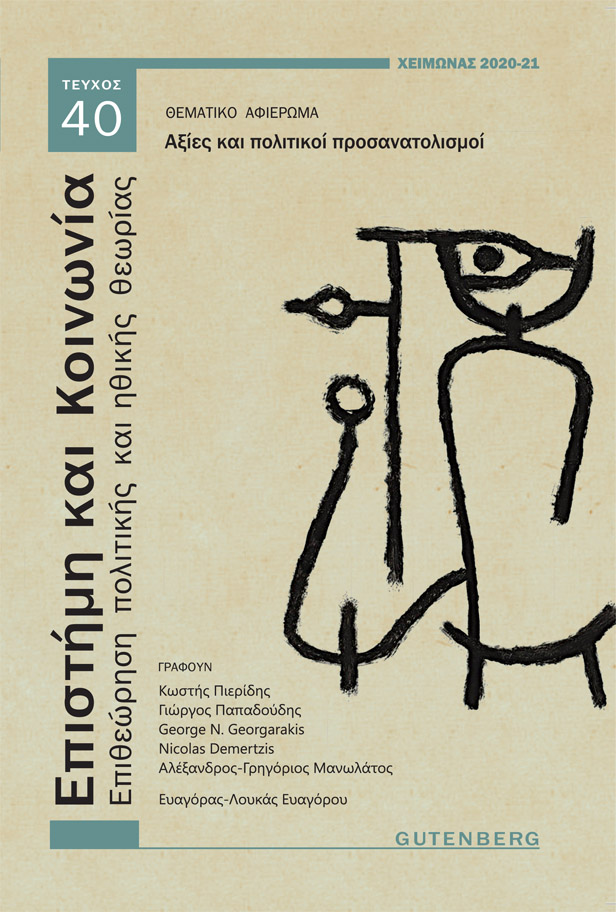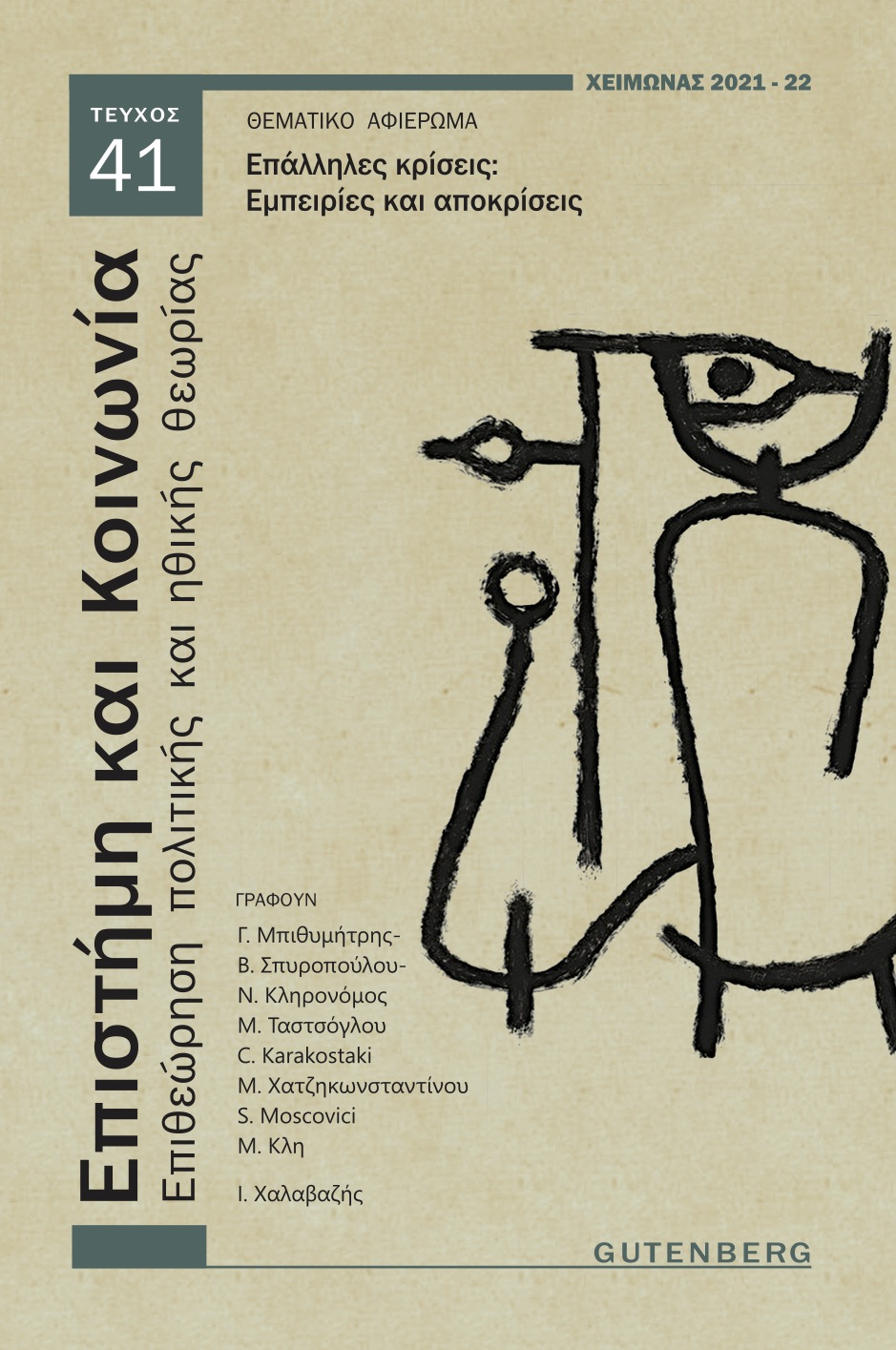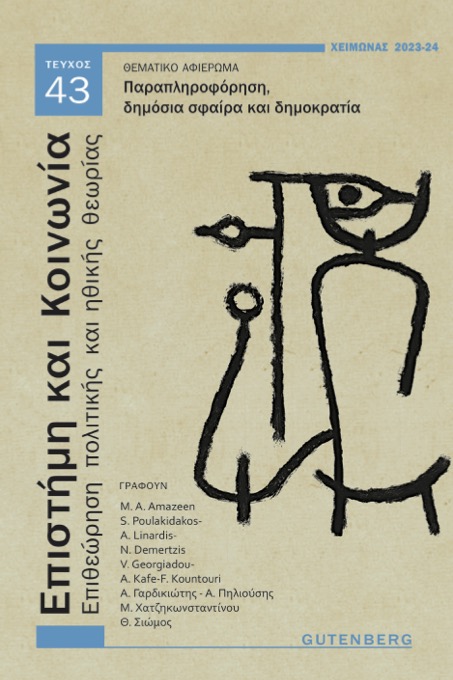Back to Black: Values, Ideology and the Black Box of Political Radicalization
Abstract
This article focuses on the psychological drivers of anomic and violent behaviors described as ‘new radicalisms’ in the context of the Eurozone economic crisis. The authors make a conceptual and empirical distinction between the desire for change forward against the old (defined as radicalism) and the desire for change backward against the new (defined as reactionism). Using 2015 data from Greece, multinomial logit models test the role of core values that map on the desire for change against the new and the desire for change against the old as predictors of dormant and actualized anomic and violent behaviors. The findings support that desire for conservation triggered reactionist political engagement in Greece that spans across the left/right ideology spectrum.
Article Details
- How to Cite
-
Capelos, T., Katsanidou, A., & Demertzis, N. (2017). Back to Black: Values, Ideology and the Black Box of Political Radicalization. Science and Society: Journal of Political and Moral Theory, 35, 35–68. https://doi.org/10.12681/sas.11493
- Section
- Articles

This work is licensed under a Creative Commons Attribution-NonCommercial-ShareAlike 4.0 International License.
Authors who publish with this journal agree to the following terms:- Authors retain copyright and grant the journal right of first publication with the work simultaneously licensed under a Creative Commons Attribution-NonCommercial-ShareAlike License that allows others to share the work, not for commercial purposes, with an acknowledgement of the work's authorship and initial publication in this journal. If you remix, transform, or build upon the material, you must distribute your contributions under the same license as the original.
- Authors are able to enter into separate, additional contractual arrangements for the non-exclusive distribution of the journal's published version of the work (e.g., post it to an institutional repository or publish it in a book), with an acknowledgement of its initial publication in this journal.
- Authors are permitted and encouraged to post their work online (e.g., in institutional repositories or on their website) prior to and during the submission process, as it can lead to productive exchanges, as well as earlier and greater citation of published work (See The Effect of Open Access).

